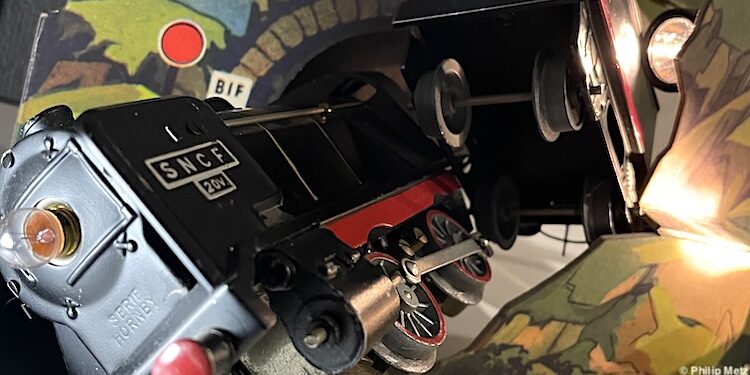To illustrate the first PIPOL 12 newsletter, published on January 16, 2025, Philip Metz offered us the inverted image of a train. Even before departure, the train had derailed.
In French, the imperfect tense sometimes leaves a certain ambiguity open. To demonstrate this, Lacan cites the following sentence: “an instant later, the bomb would be exploding” (“un instant plus tard, la bombe éclatait [1]”). It is impossible, as it is, to know with certainty whether the bomb had actually exploded or not. It is not the same for our train. It is not about to derail, because it has already derailed before its departure. No train without derailment. No family without discomfort.
There is more than one way to go off the rails, which is demonstrated by each of the texts in this edition.
In “Discomfort in the foundation”, Fatiha Belghomari shows the three facets at play in the family: the real of its act of foundation, the imaginary of its recognition, the symbolic of its inscription. We discover the vacillation of places that it produces above it all, when a change operates within the sexual inscription.
In “Garlands of words”, Elena Madera presents Tove Ditlevsen’s story of a terrible childhood that became a “library of the mind [2]”. The precision of her analysis reveals the family in its double aspect: simultaneously a place of suffering and a resource for the subject, to create his sinthome.
Finally, in “Family and drug addiction” by Ilaria Papandrea, we see the fate of jouissance when the symbolic side of the family is lacking, when the family ceases to make “formation” and “leaves the subject helpless”.
[1] Lacan J., “Remarque sur le rapport de Daniel Lagache”, Écrits, Paris, Seuil, 1966, p. 678. The translation is ours.
[2] Ditlevsen, T., Childhood: The Copenhagen Trilogy, Book I, London: Penguin Classics, 2019. The translation is ours from the French edition.
Translation: Dana Tor Zilberstein
Proofreading: Manuela Rabesahala







